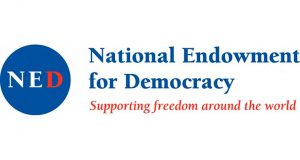Focus countries: Kenya, Mexico, Moldova, Mozambique

To foster debate and cross-regional exchange on combating transnational corruption, CiFAR has developed new project to build the capacity of civil society on sanctions and asset recovery.
Missing voices in international anticorruption community
In many developing countries, large-scale, high-level corruption cases implicating high-level public officials are ongoing, with assets located across several jurisdictions; however, European sanctions have not been applied.
Civil society actors from impacted developing countries involved in combating transnational corruption have valuable experience to share, but are often not connected with the international anticorruption community.
CiFAR’s response
Building on CiFAR’s previous work in assessing the effectiveness of EU misappropriation sanctions and mapping civil society capacity across several countries to engage in asset recovery work, we will:
- Strengthen partnerships with civil society groups in Mexico, Moldova, Mozambique, and Kenya by developing and hosting a set of training courses for civil society from these countries. The focus of the training will be the role of sanctions as a tool against kleptocracy and to facilitate asset recovery.
- Convene a cross-regional workshop on kleptocracy sanctions and asset recovery, in the context of the growth of the Magnitsky Sanctions. This workshop will connect together civil society representatives from Mexico, Moldova, Mozambique, and Kenya, as countries that have been approaching asset recovery without sanctions with countries currently subjected to anticorruption sanctions (Tunisia, Ukraine) and also participants from financial centres (UK, France, Germany, the Netherlands).
Empowered and connected civil society
As a result of the project, civil society organisations from a number of countries will strengthen their internal capacities and will be able to move their work to a more evidence-based level and to engage on asset recovery issues across-borders and globally.
Funding of the project

Read about our previous work on sanctions here.
